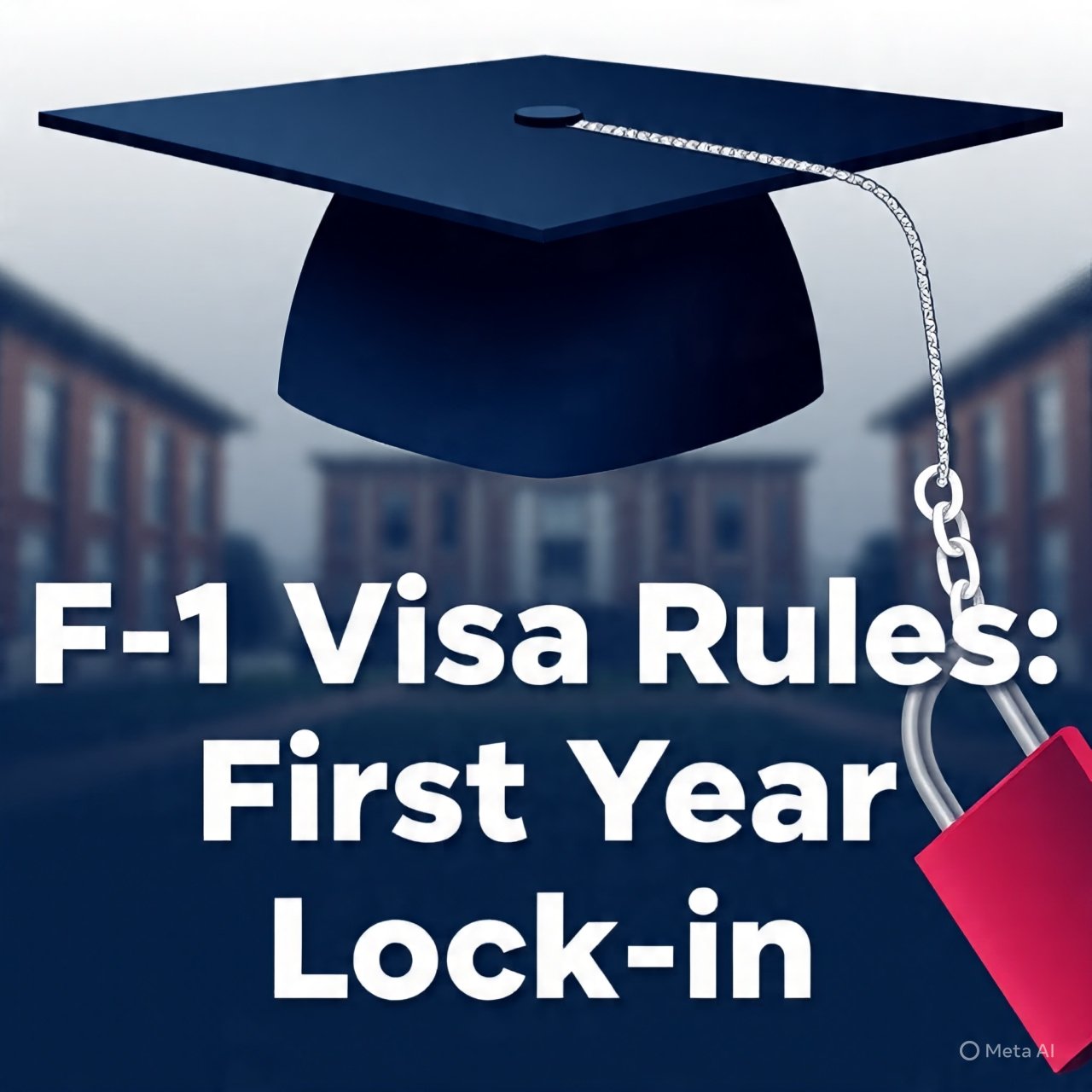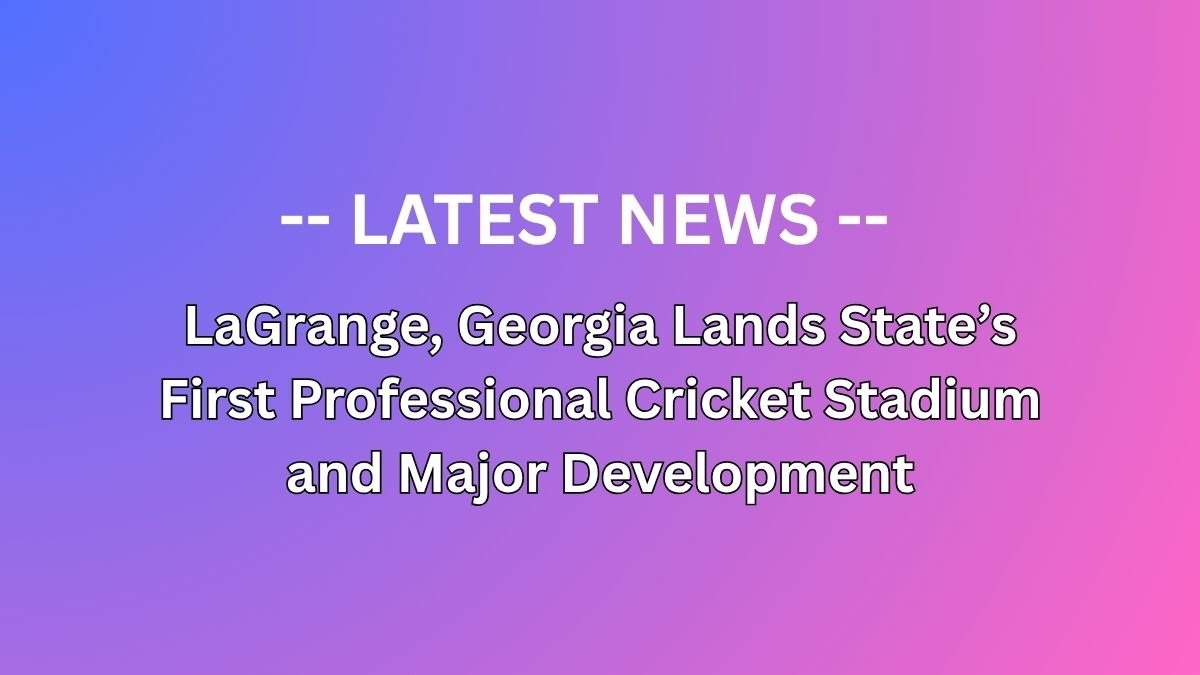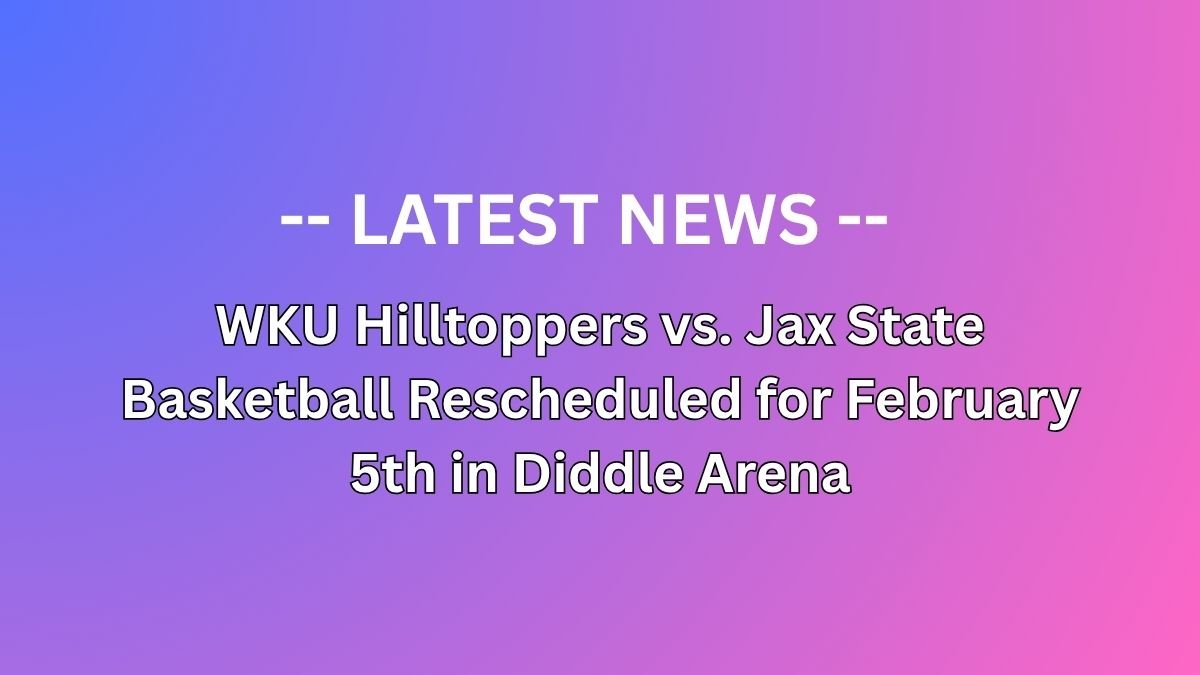For decades, the United States has been a top destination for international students seeking a world-class education. The flexibility of the U.S. academic system, which allows students to explore different majors and even transfer universities, has been a key draw. However, that flexibility is now under threat. In a significant policy shift, the U.S. Department of Homeland Security (DHS) has published a proposed rule that, if finalized, would introduce a wave of strict new F-1 Visa Rules. These regulations would eliminate the long-standing “duration of status” system and, most notably, would prohibit F-1 visa students from changing their courses or universities during their critical first year of study.
This change marks a fundamental departure from the current system and is set to have a profound impact on hundreds of thousands of aspiring and current international students. This article will provide a comprehensive and up-to-date look at the proposed changes, explaining the rationale behind the new DHS visa policy, who will be affected, and what students must do to navigate this new, more restrictive environment for international education.
Table of Contents
The Core of the New Regulation: Fixed-Term Visas and Program Lock-in
The proposed rule is a revival of a Trump-era initiative that was later withdrawn. It represents a major overhaul of the F-1 visa system, replacing the flexible “duration of status” (D/S) framework with a rigid, fixed-term admission period. Under the current D/S system, an international student could remain in the U.S. as long as they were enrolled in a full course of study. The new DHS visa policy would grant a fixed period of stay, typically up to four years, after which the student would need to apply for an extension.
- The First-Year Lock-in: The most immediate and impactful change for new students is the ban on changing their academic path during the first academic year.
- Undergraduate Students: This is a direct hit to the traditional American undergraduate experience, where many students enter as “undeclared” majors and explore different courses before settling on a field of study. Under the new F-1 Visa Rules, a student who enters the U.S. on an F-1 visa with an I-20 for a specific major (e.g., Computer Science) would not be permitted to change to another major (e.g., Biology) or transfer to a different university during their first year. This removes a crucial safety net for students who may discover their initial choice was not a good fit.
- Graduate Students: The proposed rule is even more restrictive for graduate-level students. It states that once admitted, a graduate student would not be permitted to change their program or field of study at all. This provision aims to prevent students from enrolling in multiple degrees at the same or a lower level, forcing a clear, upward progression in their academic journey.
- The End of “Duration of Status”: The elimination of D/S is a sweeping change with significant consequences.
- Under the current system, a student’s I-94 (arrival/departure record) shows “D/S,” meaning their legal stay is tied to their academic program’s length. The new rules would replace this with a specific end date, not exceeding four years.
- After the fixed period, students must apply for an extension of stay with USCIS. This new requirement introduces additional paperwork, fees, and a layer of administrative uncertainty, as the extension is not guaranteed and would be subject to a fresh review by immigration officials.
- Reduced Grace Period: The new regulations would also cut the post-completion grace period for F-1 students from the current 60 days to just 30 days. This gives graduates less time to prepare for departure, apply for Optional Practical Training (OPT), or seek a change of status, increasing the pressure to find a job or leave the country quickly.
The Rationale: Why is the Government Implementing These Changes?
The DHS has publicly stated that the proposed F-1 Visa Rules are designed to address concerns about national security and the integrity of the student visa program. The government’s perspective is that the current D/S system lacks sufficient oversight and has led to a small but concerning number of instances of visa abuse, where students enroll in multiple, consecutive academic programs to extend their stay in the U.S. indefinitely.
- Enhanced Oversight: By replacing D/S with a fixed period, the government aims to create “predetermined opportunities” for immigration officials to vet students and verify that they are engaging only in authorized activities. The new requirement for an extension of stay application allows USCIS to conduct a fresh review of the student’s background, conduct, and academic progress.
- Targeting “Forever Students”: The new policy directly targets what officials refer to as “forever students,” individuals who perpetually enroll in different courses to maintain their legal status. The ban on pursuing another program at the same or lower educational level is a direct response to this perceived loophole.
Navigating the New Reality: Challenges for International Students and Universities
The proposed F-1 Visa Rules are not without controversy. Academic institutions, immigration lawyers, and student advocates have voiced strong opposition, arguing that the changes will be detrimental to both international students and the U.S. higher education sector.
- Student Challenges:
- The Wrong Major: A key benefit of the U.S. system is the ability to change majors. This new rule eliminates that flexibility in the first year, potentially trapping students in a course of study that does not align with their passions or career goals, leading to academic dissatisfaction and mental health challenges.
- Increased Stress and Uncertainty: The fixed-term stay and the need to apply for an extension create a new layer of anxiety. Students will have to worry about maintaining their status and the possibility of denial, which could lead to an “unlawful presence” and re-entry bans.
- Administrative Hurdles: The new requirements will involve more paperwork, more fees, and more administrative delays. Students will need to work more closely with their Designated School Officials (DSO) and navigate the complexities of the USCIS system.
- University Challenges:
- Deterrent to Enrollment: The new DHS visa policy makes the U.S. a less attractive destination compared to countries like Canada or the UK, which offer more flexible immigration pathways. This could lead to a decline in international student enrollment, which is a major source of revenue for many U.S. universities.
- Administrative Burden: The new regulations will place a significant administrative burden on universities. International student offices will need to process more applications for extensions and manage the complexities of the new system, potentially requiring more staff and resources.
A Step-by-Step Guide for Current and Prospective Students
Given that these proposed changes are likely to be implemented, here is a guide for current and prospective international students to prepare.
1. Stay Informed and Updated:
- Official Sources are Key: Do not rely on rumors. Always refer to the official websites of the Department of Homeland Security, USCIS, and the Student and Exchange Visitor Program (SEVP) for the latest information. Check the Federal Register for updates on the proposed rule’s status.
- Consult Your DSO: Your school’s Designated School Official (DSO) is your most important resource. They have direct access to the SEVIS system and are best equipped to provide guidance on your specific situation.
2. Plan Your Academic Path Carefully:
- Choose Wisely: With the first-year lock-in rule, it is more important than ever to choose your major and university carefully. Do thorough research on programs, faculty, and career outcomes before you apply.
- Talk to Advisors: Before applying for your F-1 visa, speak with academic advisors at your prospective university to ensure your chosen course of study is the right fit.
3. Meticulously Prepare Your Documents:
- Your visa requirements are now more stringent. Ensure all your documents are in order, from your I-20 and passport to financial records and proof of ties to your home country. For assistance with document services and other application processes, you can seek help from professionals.
Affiliate & Promotional Services
- Affiliate Travel Services: As you plan your trip to the U.S., you will need to book your flights and find accommodations. This article recommends using services like WayAway for finding the best flight deals and HotelLook for a wide selection of hotels and rentals. These are affiliate links, and we may earn a small commission at no extra cost to you.
- AM Global: Your Trusted Partner: Navigating the complex F-1 visa process can be overwhelming. AM Global, a trusted travel and document services portal based in Delhi, India, offers a comprehensive suite of services to help you. Their team of experts can guide you through the visa application process, from preparing your documents to providing essential advice. You can contact them directly for help with your F-1 visa, Passport Services India, or any other travel and documentation needs by calling +91-9999-422-422 or emailing amglobal.org@gmail.com. For more information on their services, which also include Flight Tickets and other visa assistance, visit their website at .
FAQ
Q1: Is this a final rule?
A1: No, this is a proposed rule that was published by the DHS. It is currently open for a public comment period, during which educational institutions and other stakeholders can provide feedback. It is not a final law and could still be modified or withdrawn, but it is wise to prepare as if it will be implemented.
Q2: What happens if I change my major in my second year?
A2: The proposed rule only restricts changes in the first year for undergraduate students. However, for graduate students, the rule is more severe, prohibiting any change of program once admitted. It’s crucial to check the final language of the rule to confirm the exact policy.
Q3: What does the end of “duration of status” mean for my visa?
A3: It means your visa will have a fixed end date, typically four years from the start of your program. To stay in the U.S. beyond that date, you will need to apply for an extension of stay with USCIS, which involves additional paperwork and is subject to approval.
Q4: Will I have to pay a new fee?
A4: The proposed rule does not explicitly mention a new fee for the transfer restriction. However, a separate new rule, the “Visa Integrity Fee,” will add a $250 surcharge to most non-immigrant visa applications, including the F-1 visa.
Q5: What are the consequences of violating these new rules?
A5: Violating the terms of your student visa can lead to severe consequences, including the accrual of unlawful presence, which could result in a 3- or 10-year re-entry ban to the U.S. It is essential to maintain your status and consult with your DSO regularly.
Conclusion
The proposed changes to the F-1 visa rules represent a significant paradigm shift in U.S. immigration policy for international students. By replacing the flexible “duration of status” system with a fixed term and introducing a “first-year lock-in” on academic programs, the government is creating a more rigid and less forgiving environment. While the goal is to enhance program integrity, the new regulations pose major challenges for students who may need to change their academic path and add a layer of uncertainty to their stay in the U.S. For both prospective and current students, the key to success lies in meticulous planning, staying informed through official sources, and seeking professional guidance to navigate these new, stricter visa requirements.
Disclaimer
The information contained in this article is for general informational purposes only and is subject to change. It is based on a proposed rule by the U.S. Department of Homeland Security and is not a final law. Visa requirements and regulations can be updated at any time by the U.S. government. Readers are advised to consult the official websites of the DHS, USCIS, and the SEVP, or a qualified legal professional, for the most accurate and personalized advice regarding their visa status.
Affiliate Disclosure
This article contains affiliate links for various products and services. We may receive a small commission from purchases made through these links. These commissions help support the operation of this blog and allow us to continue providing valuable content to our readers.







